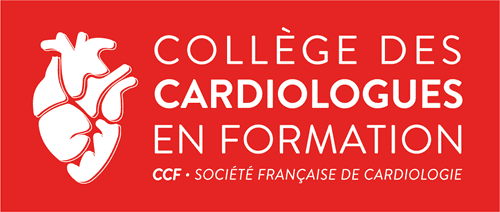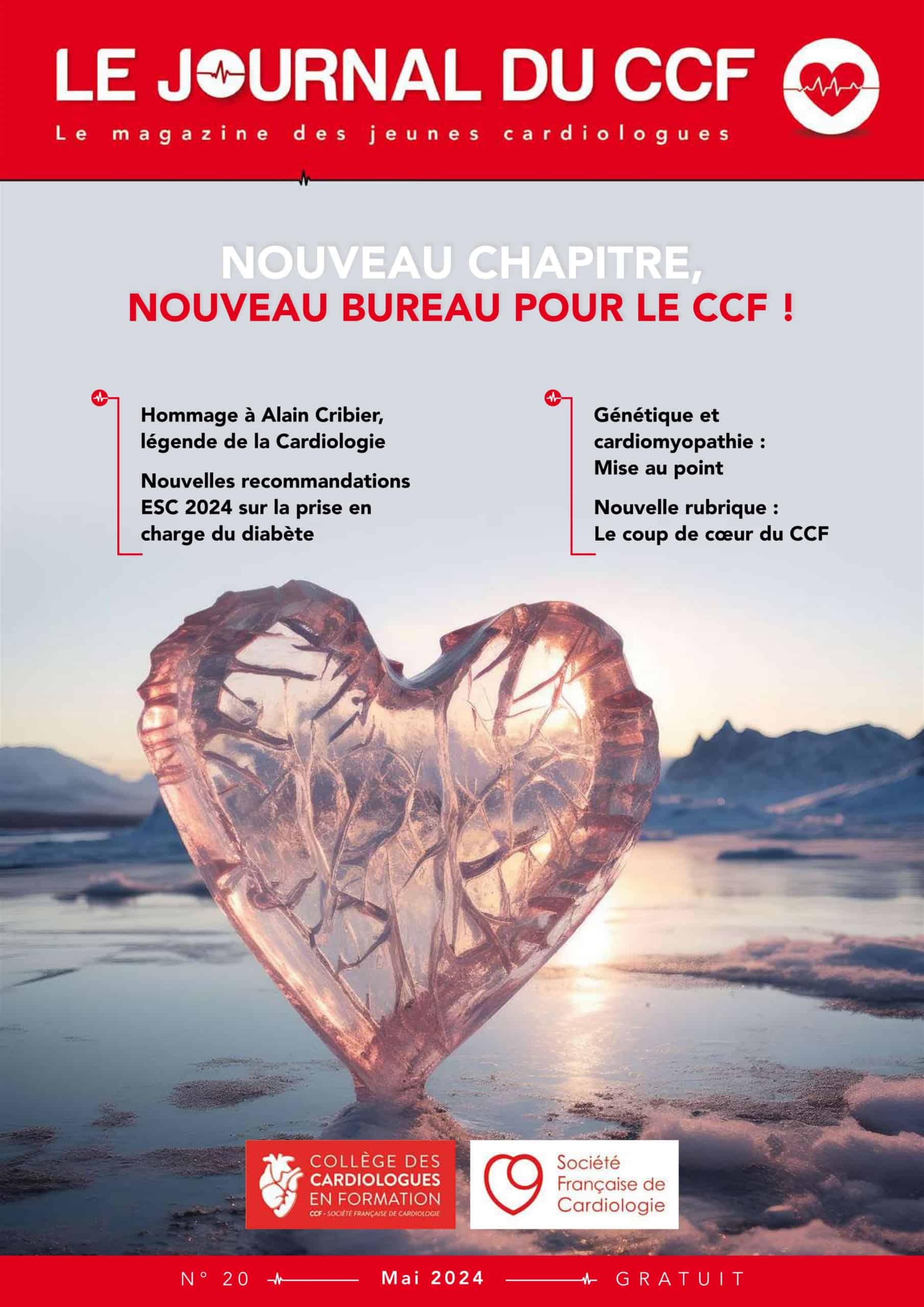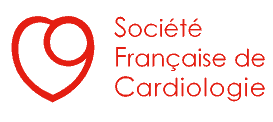Suivez nous sur les réseaux sociaux
Cet outil a vocation à informer, diffuser l’information auprès des jeunes cardiologues (internes, assistants, chefs de cliniques, jeunes praticiens, etc.), et faciliter les échanges.
Voici un aperçu rapide des sujets abordés dans cette publication :
Toutes nos publications
Une question ?
Publications
Profile of patients hospitalized in intensive cardiac care units in France: ADDICT-ICCU registry
Voici un aperçu rapide des sujets abordés dans cette publication :
Profile of patients hospitalized in intensive cardiac care units in France: ADDICT-ICCU registry
Emmanuel Gall, Théo Pezel, Benoît Lattuca, Kenza Hamzi, Etienne Puymirat, Nicolas Piliero, Antoine Deney, Charles Fauvel, Victor Aboyans, Guillaume Schurtz, Claire Bouleti, Julien Fabre, Amine El Ouahidi, Christophe Thuaire, Damien Millischer, Nathalie Noirclerc, Clément Delmas, François Roubille, Jean-Guillaume Dillinger, Patrick Henry, for the ADDICT-ICCU Investigators
Archives of Cardiovascular Diseases, Volume 117, Issue 3, March 2024, Pages 195-203
PMID: 38418306
DOI: 10.1016/j.acvd.2023.12.009
Abstract
Background
Intensive cardiac care units (ICCU) were initially developed to monitor ventricular arrhythmias after myocardial infarction. In recent decades, ICCU have diversified their activities.
Aim
To determine the type of patients hospitalized in ICCU in France.
Methods
We analysed the characteristics of patients enrolled in the ADDICT-ICCU registry (NCT05063097), a prospective study of consecutive patients admitted to ICCU in 39 centres throughout France from 7th–22nd April 2021. In-hospital major adverse events (MAE) (death, resuscitated cardiac arrest and cardiogenic shock) were recorded.
Results
Among 1499 patients (median age 65 [interquartile range 54–74] years, 69.6% male, 21.7% diabetes mellitus, 64.7% current or previous smokers), 34.9% had a history of coronary artery disease, 11.7% atrial fibrillation and 5.2% cardiomyopathy. The most frequent reason for admission to ICCU was acute coronary syndromes (ACS; 51.5%), acute heart failure (AHF; 14.1%) and unexplained chest pain (6.8%). An invasive procedure was performed in 36.2%. “Advanced” ICCU therapies were required for 19.9% of patients (intravenous diuretics 18.4%, non-invasive ventilation 6.1%, inotropic drugs 2.3%). No invasive procedures or advanced therapies were required in 44.1%. Cardiac computed tomography or magnetic resonance imaging was carried out in 12.3% of patients. The median length of ICCU hospitalization was 2.0 (interquartile range 1.0–4.0) days. The mean rate of MAE was 4.5%, and was highest in patients with AHF (10.4%).
Conclusions
ACS remains the main cause of admissions to ICCU, with most having a low rate of in-hospital MAE. Most patients experience a brief stay in ICCU before being discharged home. AHF is associated with highest death rate and with higher resource consumption.


